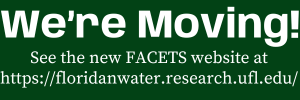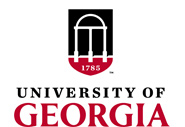Looking into the future, imagining different scenarios, identifying choices, and exploring tradeoffs -- all to ensure a sustainable future for the Upper Floridan Aquifer and the regional economy -- can seem overwhelming. How will we know what scenarios to consider? How will we know that the information we are building our scenarios on is sound? How will we explore situations and potential tradeoffs from different perspectives?
 One major objective of the project is to bring stakeholders and experts throughout the region together to explore these and other questions.
One major objective of the project is to bring stakeholders and experts throughout the region together to explore these and other questions.
Stakeholder collaboration and contributions are achieved through:
- Project Advisory Committee (PAC)
- Stakeholder members engaging in the Participatory Modeling Process (PMP Stakeholders)
- Stakeholder surveys and focus groups
Participatory Modeling Process (PMP)
Project models allow stakeholders to explore the tradeoffs of future land and water use between agricultural, economic, and environmental issues. If project scientists were to build and run their models using data from secondary sources and without stakeholder involvement, they would run the risk that the outputs might inaccurately represent the realities across the region. Failure to consider stakeholder perspectives might result in findings that are of little relevance or use to local decision-makers. As part of a “participatory modeling process”, we look to stakeholders to inform the model development and propose and analyze alternative future scenarios.
 The goal of the Participatory Modeling Process (PMP) is to create a venue for scientists and stakeholders to come together and share perspectives, identify knowledge gaps, and create holistic, legitimate visions of the future. The group is in the process of generating a series of scenarios (pictures of future land and water use and management) at both the farm and regional scale across two watersheds - in Florida and Georgia. Informed by biophysical, economic and land-use model results, these scenarios enable discussions around a range of impacts that different management practices and land uses may have on water quality, water quantity, and economics. In addition, the scenarios enable dialog about the tradeoffs among land management and land use choices and the kinds of incentives that would be needed to sustain healthy rural economic and environmental systems.
The goal of the Participatory Modeling Process (PMP) is to create a venue for scientists and stakeholders to come together and share perspectives, identify knowledge gaps, and create holistic, legitimate visions of the future. The group is in the process of generating a series of scenarios (pictures of future land and water use and management) at both the farm and regional scale across two watersheds - in Florida and Georgia. Informed by biophysical, economic and land-use model results, these scenarios enable discussions around a range of impacts that different management practices and land uses may have on water quality, water quantity, and economics. In addition, the scenarios enable dialog about the tradeoffs among land management and land use choices and the kinds of incentives that would be needed to sustain healthy rural economic and environmental systems.
Social Learning Research
Ongoing research focuses on the participatory modeling process, involvement and learning, and shapes design of subsequent project phases. Few studies systematically evaluate the nature of the exchange space that is created during similar PMP projects, and this research contributes to the broader knowledge of similar processes.
Communications Research
Understanding biases and appreciating others’ perspectives can be important to framing communication materials. Communication research is being implemented and tools are being created to inform broader audiences of key issues, model scenarios and potential tradeoffs.
Stakeholder Engagement Team Members
Team Coordinator
Paloma Carton de Grammont, University of Florida
Wendy-Lin Bartels, University of Florida
Gail Cowie, Albany State University
Sadie Hundemer, University of Florida
Carrie Furman, University of Georgia
Mark Masters, Albany State University
Martha Monroe, University of Florida
Kristin Rowles, Albany State University
Students
Natalie Cooper, University of Florida
Past Members
Karen Schlatter, University of Florida






